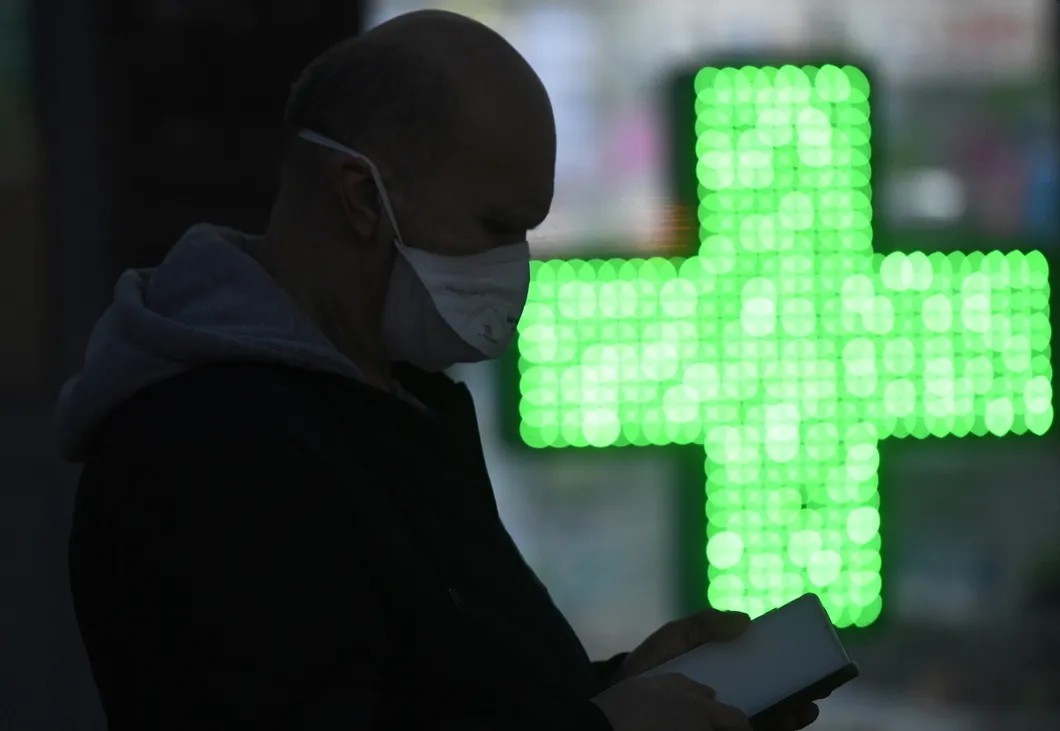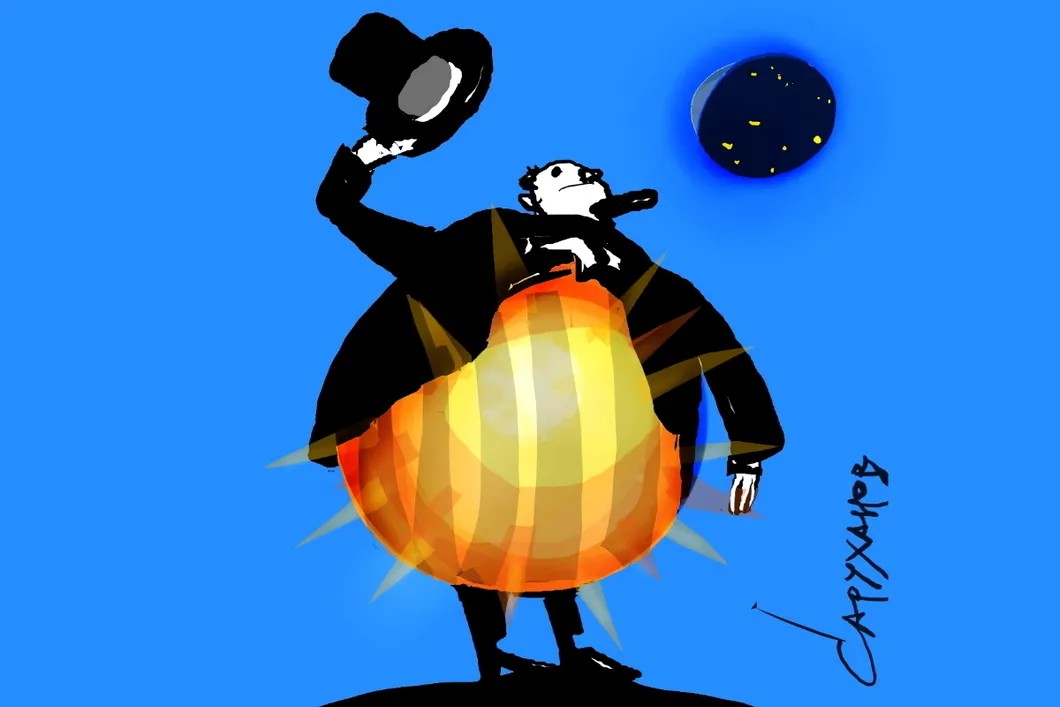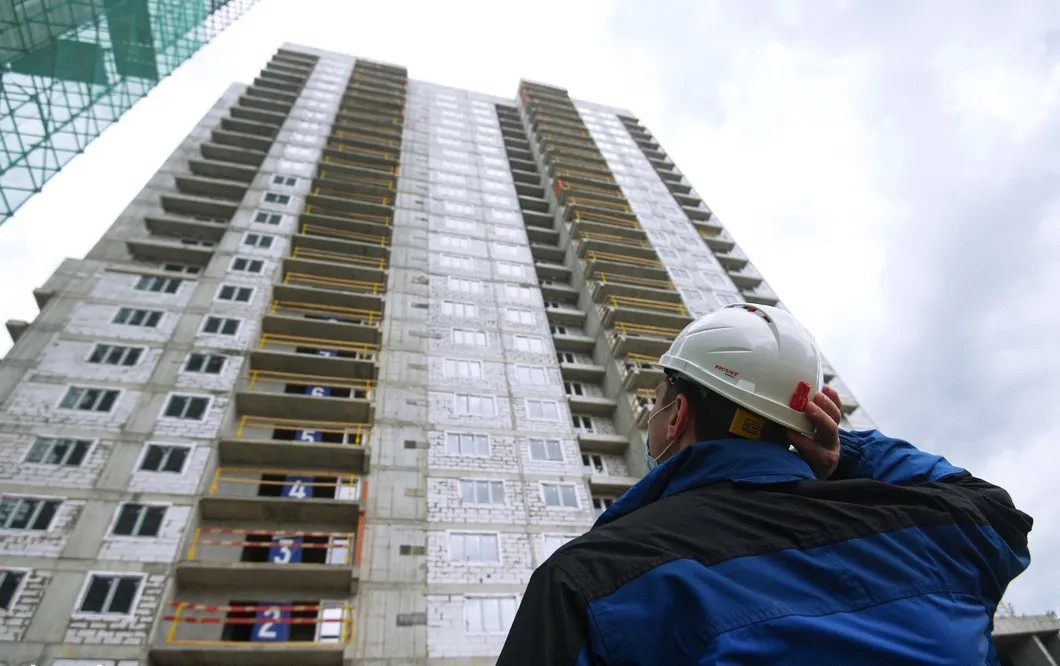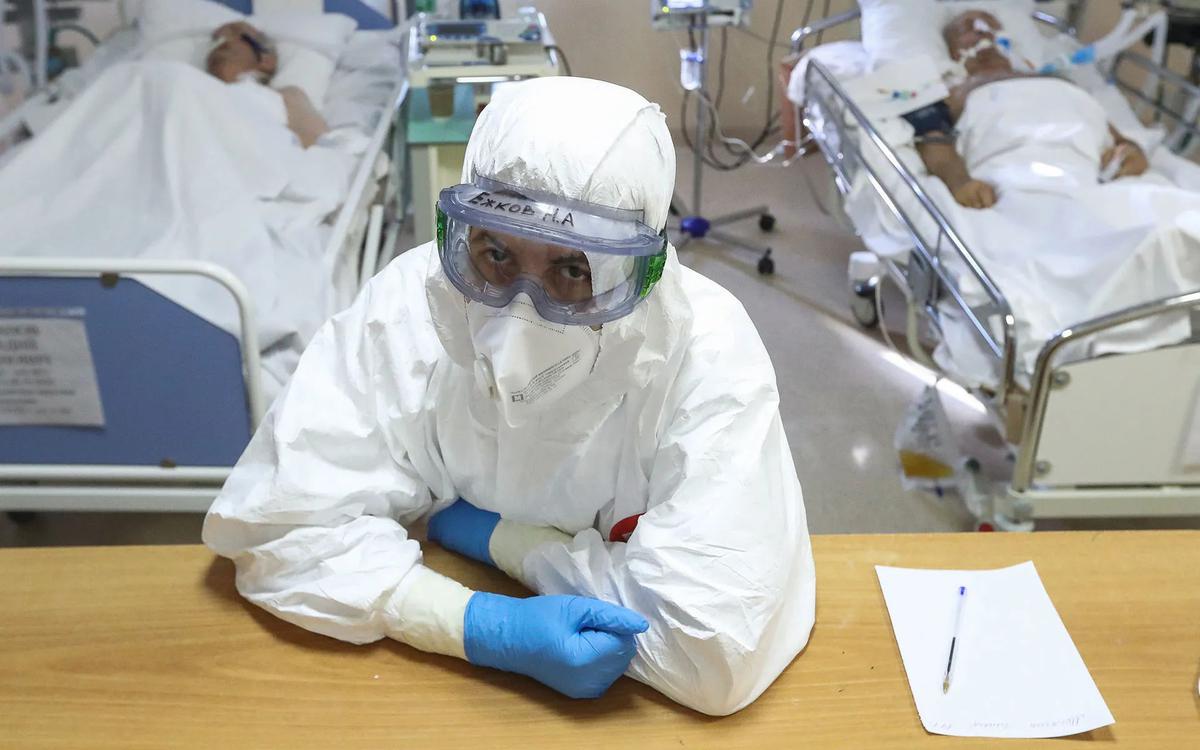This Week’s Highlights
The Covid-19 therapeutic drugs are vanishing from Russian pharmacy shelves and our investigation exposes poor management of the supply chain; we examine what the Russian ruling elites expect from the upcoming U.S. presidential elections; plus, we’ve spotted a mortgage bubble in some of Russian largest cities, and loan defaults are looming in the near future.
Want to get the full story? Click the links below for full-length articles in Russian.
Covid-19 Drugs Shortage, Explained
A new wave of the pandemic brings a record number of new cases. Yet, the mortality rates remain lower than earlier this Spring. One of the reasons is that doctors have gotten better at treating Covid-19 using a cocktail of common drugs, such as anticoagulants and antibiotics. But as a second wave of the pandemic engulfs the country, many of these medicines are now unavailable in Russia’s pharmacies. This week we investigated the shortage.
A MISHANDLED REFORM GOT IN THE WAY.Many of the supply problems stem from a new labeling system. The government rolled it out this Summer to ensure drug manufacturers can’t avoid taxes or sell counterfeit stuff. Each pack of medicine now has a unique ID, a type of digital passport that tracks the journey from the warehouse to the pharmacy. But the idea turned out to be incompatible with the Russian bureaucracy.

LIFE-SAVING DRUGS STUCK IN WAREHOUSES. In reality, the new system has left hundreds of thousands of packages of medicines just sitting in warehouses, our investigation discovered. The ID tracking is done centrally from Moscow, while drugs travel circuitous routes around the country. The process quickly got backlogged. Officials deny a problem and argue that 98 percent of the transactions are logged in just 10 minutes. But almost all pharmaceutical companies tell us that’s a lie.
OR STUCK AT THE BORDER. The same new system messed up the customs clearing, too. One manufacturer told us it had 30,000 packages of antibiotics waiting at the border. Another company’s shipping trucks turned around at the border because a problem with the electronic labeling system made it impossible to clear the drugs. A third company did manage to get 25,000 packages through customs, but they had to wait for weeks instead of hours. And the situation isn’t only impacting drugs used to treat Covid-19. Every day, drugs like aspirin are disappearing from pharmacy shelves as well.
‘Right now, we have a second wave of Covid-19. Can you imagine the cost to human lives?’ complains Adelya Kalmetyeva, ahead of the local pharmaceutical chain Pharmland. ‘It’s a nightmare scenario. People are simply dying. There are fewer medicines in the hospital. The more cases there are, the more people turn to pharmacies to receive treatment,’ Kalmetyeva adds.
OLIGARCHS INC.The federal information system used to tag and monitor these medical products is run by a consortium between the state and Kremlin-friendly oligarchs. Half of the system’s operator is owned by oligarch Alisher Usmanov. The other half is split between the state-owned Rostec Corporation and oligarch Alexander Galitsky. This consortium earns half a ruble for every tagged item. And Russia sells around 5 billion packages of medication each year. That means these beneficiaries are getting rich off a system that isn’t even working the way it meant to.
AT LEAST OUR INVESTIGATION FORCED THE OFFICIALS TO ACKNOWLEDGE THE CRISIS.Following our story’s publication, Russia’s Ministry of Industry and Commerce has temporarily moved the new system to “notification mode” only. That means that the packages wouldn’t have to jump through as many administrative hoops, and the delays would be reversed. Let’s see if that actually happens.

‘Major decisions, both economic and political, are made in our country with complete disregard for the public interest and with the complete absence of public discussion,’ writes Novaya Gazeta’s political editor Kiril Martynov in this week’s commentary profiling the investigation.
BACKSTORY.Russia’s oligarchs are often private citizens who have leveraged their connections to the government to amass vast fortunes and monopolize a substantial portion of the economy. This scenario has harmed Russia’s pharmaceutical market, which has been grossly mismanaged. Novaya Gazeta analyzed the Russian government’s drug purchases and found that over 1 billion rubles have already been spent on ineffective drugs since the beginning of the year. The situation got worse after the government limited the supply of foreign drugs following international sanctions while at the same time allowing friendly oligarchs to monopolize the market. Weak regulations allow state-linked pharma companies to profit off shady drugs and the declining health of the rapidly aging population.
Read our full investigation into Russia’s vanishing Covid-19 medicines here, and Kirill Martynov’s commentary on the state of Russian crony capitalism here.
Russia’s Future Mortgage Crisis
Russia's real estate market currently has all of the signs of a burgeoning mortgage bubble or when an asset's price is much higher than its actual value. The situation is glaring in large cities all around the country, including in Moscow, St. Petersburg, Yekaterinburg, Kazan, and Novosibirsk.
ROOTS IN ECONOMIC POPULISM. Economists blame Russia's state mortgage program. It partially subsidizes the mortgages and allows them to take out a home loan with a downpayment of only 15 percent. The government launched it this Spring to stimulate the economy and encourage homeownership. But the homeownership rate is already pretty high in Russia, averaging around 81 percent between 2000 and 2018. So it looked more like a populism project in the wake of a constitutional power grab earlier this year.
Поддержите
нашу работу!
Нажимая кнопку «Стать соучастником»,
я принимаю условия и подтверждаю свое гражданство РФ
Если у вас есть вопросы, пишите [email protected] или звоните:
+7 (929) 612-03-68
BUBBLING.The program stimulated people to buy homes faster than developers can build them. In some regions, around 90 percent of new buildings are sold through the state-subsidized mortgage, which artificially inflates housing prices. In Moscow, reports suggest that housing prices have already skyrocketed by 10 percent in the last few months. All this despite a severe economic downturn inflicted by the Great Shutdown.
MASSIVE BURST IS AHEAD.The rise in housing prices isn't problematic on its own. Still, it is dangerous because this bubble is based almost entirely on money borrowed by people with few resources. As real wages and disposable income continue to stagnate in Russia, real estate prices and the number of mortgage loans have simultaneously ballooned. This is the perfect storm for loan defaults.

TO PREVENT A MAJOR CRISIS,experts suggest mandating all down payments to be no less than 30 to 40 percent. The Russian government must also stop allowing prospective homeowners to finance their mortgages from other loans they took out previously. This will clash with the state's populism economics, so it's unclear whether authorities will go for it. 'Regulators still have time if not to prevent the mortgage crisis completely, then at least to mitigate it,' writes in this week's op-ed a Russian macroeconomic adviser Sergey Khestanov.
THE KREMLIN IS OFFICIALLY CONCERNED. Amid growing alarm, the Kremlin spokesperson Dmitry Peskov has said this week that the government is analyzing the situation and will intervene to prevent a mortgage bubble from forming. But he did not lay out a plan for how to do that.
BACKSTORY.Even before the Covid-19 pandemic, Russia had a growing household debt problem. In the past four years, debt has risen by a third as incomes kept falling amid poorly regulated lending practices. Experts believe the outbreak is set to exacerbate the problem. More than 21 million people in Russia live below the poverty line,and 60 percent have no savings. Incomes have been on the decline for the past seven years, and analysts predict that the pandemic will make Russian citizens 10 percent poorer than a decade ago. This could be disastrous for the housing market.
Read our full analysis of Russia’s mortgage bubble here.
What Upcoming U.S. Elections Mean for Russia
The words' Russia', 'Kremlin' and 'Putin' have been used so often in the ongoing U.S. presidential campaign that sometimes makes you feel like Russia might be another American state. But what about the Russian ruling elites? How do they feel about the American elections? This week we invite Novaya's foreign desk head Andrey Lipsky to guest-host one of our this week's segments. He has some sobering reality-check for Americans:
FIRST, LET'S NOT OVERSIMPLIFY.The notion that Donald Trump is 'the Kremlin's stooge' is just as primitive as the trap that the Kremlin uses to paint the opposition as 'controlled by the State Department.' The Russian ruling elites' attitude towards the U.S. and the current administration is more complicated than this.
TRUMP WAS GOOD FOR THE KREMLIN. BUT NOT TOO GOOD.45th is less bothered by Putin's expansionist geopolitics, disregard for human rights, the rule of law, and Russian democratic traditions. Trump even openly sympathizes with Putin's 'decisive' ruling style. And the Kremlin certainly likes this. However, it wasn't a honeymoon. Trump's disregard for the arms limitation treaties between the two countries is destructive and fundamentally clashes with the Kremlin's strategic interests. Further discontent is fueled by the expansion of the anti-Russian U.S. sanctions regime. Specifically,the ongoing sabotage by the U.S. of the Nord Stream II gas pipeline construction in Europe marks one of the most severe attacks on Russian geopolitical and economic interests in decades.
POSSIBLE VICTORY BY BIDEN IS A CONCERN FOR KREMLIN. BUT NOT A TERRIBLE CONCERN. Biden's stance on the disarmament with Russia is aligned with the Kremlin's strategic goals. He was against Trump's withdrawal from the Intermediate-Range Nuclear Forces Treaty, the Open Skies Treaty, and favored the START III extension. But when it comes to everything else, he is a much vocal critic of the Putin regime. This is very displeasing to the Kremlin and might come at the worst timing of growing socio-economic problems inside the country and protest sentiments of regular Russians.
KREMLIN IS AFTER CAUTIOUS BALLANCE.This mixed bag of pros and cons forces the Kremlin to carefully balanced approach towards the U.S. elections. Undoubtedly, the sympathy towards Trump still prevails. In a public gesture of support on the eve of the elections, Putin even agreed to a quite dubious proposal to "freeze all nuclear weapon development" with an extension of START III for a year. However, this is a far cry from the overenthusiastic response to his victory in 2016. The Kremlin has no illusions or misplaced optimism about Trump anymore. Only naked pragmatism is left where geopolitical competition with the U.S. is pushed back in priorities over the attempts to stabilize Putin's waning grip over Russia.
Other Top-Stories Russia Has Been Reading
- MORE FOREIGN MERCENARIES IN NAGORNO-KARABAKH.Earlier we reported on mercenaries from the Middle East flocking to the Nagorno Karabakh frontline. Specifically, how Turkey recruits Syrian militants to fight for Azerbaijan. This week we published a new expose on the recruitment conditions. Our special war correspondent Wadih El-Hayek managed to find out how much the mercenaries are paid and even reveal some of their names. It was one of our most-read stories in Russia this week. According to Wadih El-Hayek sources, over 185 Syrian mercenaries have been killed since the beginning of the ongoing hostilities in Nagorno Karabakh.
- BANK SECURITY SCAMMERS. In another widely-red story this week, we report on the exponential growth of the crimes by scammers pretending to be bank call centers. Specifically, how Russian prisons became a headquarters for these rackets and law enforcement is doing little to crack down on this phenomenon. Quite possibly because the penitentiary officials share the profits. Since the beginning of the year, the country’s largest state bank Sberbank has recorded around 2.9 million reports from customers about attempted fraud in the amount of 42 billion rubles (around $551 million). This is twice as much as in the same period last year.
- A CHAT WITH KAMCHATKA’s GOVERNOR.The Kamchatka environmental disaster remains an unsolved mystery. So we sat down with the region’s governor Vladimir Solodov for a hardtalk — and it made into one of the most-read stories. Despite skepticism by the eco-activists, he assures that the poisonous algae is to blame. The first water samples from the site showed traces of rocket fuel in the water, but Solodov says that the levels were insignificant.
Thanks for reading!To keep up with Novaya Gazeta’s reporting throughout the week, you can follow us on Facebook, Twitter, Instagram, and Telegram. Our video content is available on Youtube and don’t forget to visit our website for the latest stories in Russian.
— The Novaya Gazeta Team
Поддержите
нашу работу!
Нажимая кнопку «Стать соучастником»,
я принимаю условия и подтверждаю свое гражданство РФ
Если у вас есть вопросы, пишите [email protected] или звоните:
+7 (929) 612-03-68
